19 start with G start with G
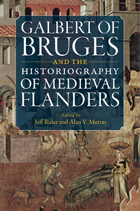

The study of garden history has grown rapidly over the last twenty years. This collection of essays explores the issues, methods, and approaches that students in landscape architecture have developed during that period to cope with the expanding subject of gardens and their history. The volume will serve as a bench mark in the field, with its range of approaches and wealth of illustrative material.
Each contributor focuses upon a specific piece of his or her research, and uses this as a basis to discuss the wider implications of the study of gardens within such contexts as botanical, horticultural, agrarian, literary, technological, social, culture, political, and art history. The historical and geographical range is also deliberately large: from ancient Greek and Roman gardens, through Islamic and Mughal examples, to nineteenth-century English estates; from India to Surry County, Virginia, from Versailles to Philadelphia.
Certain themes come to dominate the volume: the values of archeology to garden history and conservation; the different or even rival uses of literature, painting, archival, and other documentation; geographical understanding of territory; above all, the rich resources of gardens for historical study and the importance of landscape architectural history in its own right as a major contributor to humanistic knowledge.

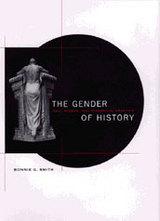
In this pathbreaking study of the gendering of the practices of history, Bonnie Smith resurrects the amateur history written by women in the nineteenth century--a type of history condemned as trivial by "scientific" male historians. She demonstrates the degree to which the profession defined itself in opposition to amateurism, femininity, and alternative ways of writing history. The male historians of the archive and the seminar claimed to be searching for "genderless universal truth," which in reality prioritized men's history over women's, white history over nonwhite, and the political history of Western governments over any other. Meanwhile, women amateurs wrote vivid histories of queens and accomplished women, of manners and mores, and of everyday life.
Following the profession up to 1940, The Gender of History traces the emergence of a renewed interest in social and cultural history which had been demeaned in the nineteenth century, when professional historians viewed themselves as supermen who could see through the surface of events to invisible meanings and motives. But Smith doesn't let late twentieth-century historians off the hook. She demonstrates how, even today, the practice of history is propelled by fantasies of power in which researchers imagine themselves as heroic rescuers of the inarticulate lower classes. The professionals' legacy is still with us, as Smith's extraordinary work proves.
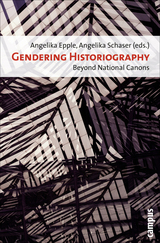
Comparing various European and American historiographies from the past two hundred years, Gendering Historiography provides insights into the establishment and cultivation of gendered power relations in different societies and outlines the devastating effects that exclusionary practices can have on each national canon. This detailed and revealing book will change the face of history writing, bringing overlooked and previously excluded histories back into modern historiography.

In the past quarter-century, gender has emerged as a lively area of inquiry for historians and other scholars, and gender analysis has suggested important revisions of the “master narratives” of national histories—the dominant, often celebratory tales of the successes of a nation and its leaders. Although modern Japanese history has not yet been restructured by a foregrounding of gender, historians of Japan have begun to embrace gender as an analytic category.
The sixteen chapters in this volume treat men as well as women, theories of sexuality as well as gender prescriptions, and same-sex as well as heterosexual relations in the period from 1868 to the present. All of them take the position that history is gendered; that is, historians invariably, perhaps unconsciously, construct a gendered notion of past events, people, and ideas. Together, these essays construct a history informed by the idea that gender matters because it was part of the experience of people and because it often has been a central feature in the construction of modern ideologies, discourses, and institutions. Separately, each chapter examines how Japanese have (en)gendered their ideas, institutions, and society.

Their key finding—built on historical research and interviews in the United States and seven other countries (including China, Japan, Germany, Lithuania, Russia, Israel, and Ukraine)—is that our most powerful generational memories are of shared experiences in adolescence and early adulthood, like the 1963 Kennedy assassination for those born in the 1950s or the fall of the Berlin Wall for young people in 1989. But there are exceptions to that rule, and they're significant: Corning and Schuman find that epochal events in a country, like revolutions, override the expected effects of age, affecting citizens of all ages with a similar power and lasting intensity.
The picture Corning and Schuman paint of collective memory and its formation is fascinating on its face, but it also offers intriguing new ways to think about the rise and fall of historical reputations and attitudes toward political issues.
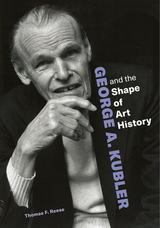
Art historian George A. Kubler (1912–1996) was a foundational scholar of ancient American art and archaeology as well as Spanish and Portuguese architecture. During over five decades at Yale University, he published seventeen books that included innovative monographs, major works of synthesis, and an influential theoretical treatise. In this biography, Thomas F. Reese analyzes the early formation, broad career, and writings of Kubler, casting nuanced light on the origins and development of his thinking.
Notable in Reese’s discussion and contextualization of Kubler’s writings is a revealing history and analysis of his Shape of Time—a book so influential to students, scholars, artists, and curious readers in multiple disciplines that it has been continuously in print since 1962. Reese reveals how pivotal its ideas were in Kubler’s own thinking: rather than focusing on problems of form as an ordering principle, he increasingly came to sequence works by how they communicate meaning. The author demonstrates how Kubler, who professed to have little interest in theory, devoted himself to the craft of art history, discovering and charting the rules that guided the propagation of structure and significance through time.
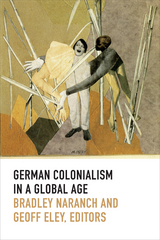
Contributors. Dirk Bönker, Jeff Bowersox, David Ciarlo, Sebastian Conrad, Christian S. Davis, Geoff Eley, Jennifer Jenkins, Birthe Kundus, Klaus Mühlhahn, Bradley Naranch, Deborah Neill, Heike Schmidt, J. P. Short, George Steinmetz, Dennis Sweeney, Brett M. Van Hoesen, Andrew Zimmerman

The German Patient takes an original look at fascist constructions of health and illness, arguing that the idea of a healthy "national body"---propagated by the Nazis as justification for the brutal elimination of various unwanted populations---continued to shape post-1945 discussions about the state of national culture. Through an examination of literature, film, and popular media of the era, Jennifer M. Kapczynski demonstrates the ways in which postwar German thinkers inverted the illness metaphor, portraying fascism as a national malady and the nation as a body struggling to recover. Yet, in working to heal the German wounds of war and restore national vigor through the excising of "sick" elements, artists and writers often betrayed a troubling affinity for the very biopolitical rhetoric they were struggling against. Through its exploration of the discourse of collective illness, The German Patient tells a larger story about ideological continuities in pre- and post-1945 German culture.
Jennifer M. Kapczynski is Assistant Professor of Germanic Languages and Literatures at Washington University in St. Louis. She is the coeditor of the anthology A New History of German Cinema.
Cover art: From The Murderers Are Among Us (1946). Reprinted courtesy of the Deutsche Kinemathek.
"A highly evocative work of meticulous scholarship, Kapczynski's deftly argued German Patient advances the current revaluation of Germany's postwar reconstruction in wholly original and even exciting ways: its insights into discussions of collective sickness and health resonate well beyond postwar Germany."
---Jaimey Fischer, University of California, Davis
"The German Patient provides an important historical backdrop and a richly specific cultural context for thinking about German guilt and responsibility after Hitler. An eminently readable and engaging text."
---Johannes von Moltke, University of Michigan
"This is a polished, eloquently written, and highly informative study speaking to the most pressing debates in contemporary Germany. The German Patient will be essential reading for anyone interested in mass death, genocide, and memory."
---Paul Lerner, University of Southern California

Through a lifetime of passionate scholarship, Gershom Scholem (1897–1982) uncovered the “domains of tradition hidden under the debris of centuries” and made the history of Jewish mysticism and messianism comprehensible and relevant to current Jewish thought.
In this paperback edition of his definitive book on Scholem’s work, David Biale has shortened and rearranged his study for the benefit of the general reader and the student. A new introduction and new passages in the main text highlight the pluralistic character of Jewish theology as seen by Scholem, the place of the Kabbalah in debates over Zionism versus assimilation, and the interpretation of Kafka as a Jewish writer.
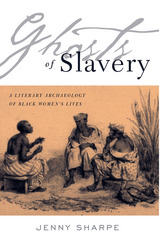
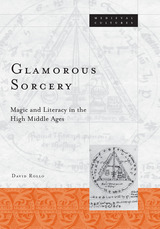

In this volume, an esteemed group of international historians examines key elements of science in societies across Spanish America, Europe, West Africa, India, and Asia as they overlapped each other increasingly. Chapters focus on the range of participants in eighteenth- and nineteenth-century science, their concentrated effort in description and taxonomy, and advancements in techniques for sharing knowledge. Together, contributors highlight the role of scientific change and development in tightening global and imperial connections, encouraging a deeper conversation among historians of science and world historians and shedding new light on a pivotal moment in history for both fields.
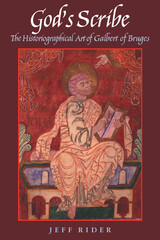
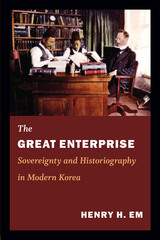
Surveying historical works written over the course of the twentieth century, Em elucidates the influence of Christian missionaries, as well as the role that Japan's colonial policy played in determining the narrative framework for defining Korea's national past. Em goes on to analyze postcolonial works in which South Korean historians promoted national narratives appropriate for South Korea's place in the U.S.-led Cold War system. Throughout, Em highlights equal sovereignty's creative and productive potential to generate oppositional subjectivities and vital political alternatives.

"China" and "the West," "us" and "them," the "subject" and the "non-subject"--these and other dualisms furnish China watchers, both inside and outside China, with a pervasive, ready-made set of definitions immune to empirical disproof. But what does this language of essential difference accomplish? The essays in this book are an attempt to cut short the recitation of differences and to answer this question.
In six interpretive studies of China, the author examines the ways in which the networks of assumption and consensus that make communication possible within a discipline affect collective thinking about the object of study. Among other subjects, these essays offer a historical and historiographical introduction to the problem of comparison and deal with translation, religious proselytization, semiotics, linguistics, cultural bilingualism, writing systems, the career of postmodernism in China, and the role of China as an imaginary model for postmodernity in the West. Against the reigning simplifications, these essays seek to restore the interpretation of China to the complexity and impurity of the historical situations in which it is always caught.
The chief goal of the essays in this book is not to expose errors in interpreting China but to use these misunderstandings as a basis for devising better methodologies for comparative studies.
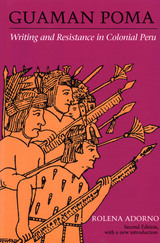
In the midst of native people's discontent following Spanish conquest, a native Andean born after the fall of the Incas took up the pen to protest Spanish rule. Felipe Guaman Poma de Ayala wrote his Nueva corónica y buen gobierno to inform Philip III of Spain about the evils of colonialism and the need for governmental and societal reform. By examining Guaman Poma's verbal and visual engagement with the institutions of Western art and culture, Rolena Adorno shows how he performed a comprehensive critique of the colonialist discourse of religion, political theory, and history. She argues that Guaman Poma's work chronicles the emergence of a uniquely Latin American voice, characterized by the articulation of literary art and politics.
Following the initial appearance of Guaman Poma: Writing and Resistance in Colonial Peru, the 1990s witnessed the creation of a range of new studies that underscore the key role of the Nueva corónica y buen gobierno in facilitating our understanding of the Andean and Spanish colonial pasts. At the same time, the documentary record testifying to Guaman Poma's life and work has expanded dramatically, thanks to the publication of long-known but previously inaccessible drawings and documents. In a new, lengthy introduction to this second edition, Adorno shows how recent scholarship from a variety of disciplinary perspectives sheds new light on Guaman Poma and his work, and she offers an important new assessment of his biography in relation to the creation of the Nueva corónica y buen gobierno.

READERS
Browse our collection.
PUBLISHERS
See BiblioVault's publisher services.
STUDENT SERVICES
Files for college accessibility offices.
UChicago Accessibility Resources
home | accessibility | search | about | contact us
BiblioVault ® 2001 - 2024
The University of Chicago Press









